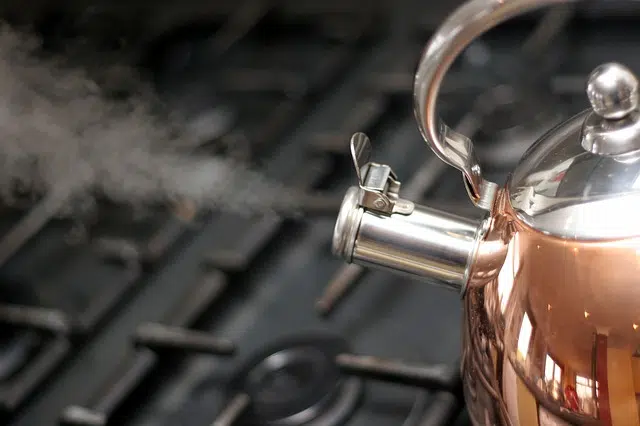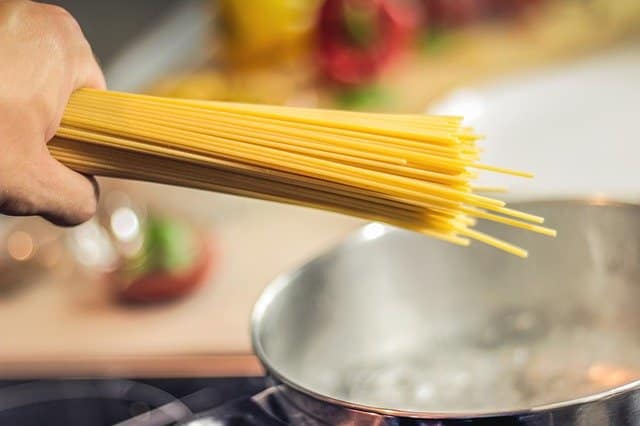
The boiling point of a liquid is the temperature at which it boils.
The boiling point is usually defined as the instant at which the change of state of a matter from liquid to gaseous occurs. The concept, specifically, refers to the temperature that causes the vapor pressure of a liquid to equal the vapor pressure of the medium in question.
In other words, the boiling point refers to the temperature at which a liquid boils , which is linked to the specific properties of the liquid, and not its quantity. It is important to note that, once the liquid has come to the boil (and is boiling), the temperature does not change.
The temperature of matter is linked to the kinetic energy of its molecules. Typically, a few molecules can break the surface tension: however, once the boiling point temperature is reached, the entropy increases and the particles become disordered.
The boiling point of water
Take the case of water . The boiling point of H2O is 100 degrees Celsius . This means that we can put water at room temperature (20 degrees, for example) in a jug and bring the container to the fire. The water, at that moment, will be in a liquid state.
As the temperature increases, however, the surface tension will begin to change. Thus, upon reaching 100 degrees, the water will reach its boiling point and begin to boil, turning into a gaseous state. As mentioned in previous paragraphs, it does not matter if the jug contains half a liter, one liter or three liters of water: the boiling point will always be 100 degrees.
The importance when cooking and preparing infusions
Especially in the case of water, knowing and anticipating its boiling point is essential for its use in the culinary field, given that, while for some recipes it is necessary to bring it to a boil, this point can ruin others, which only require the use of hot water.

To cook noodles, you must bring water to its boiling point.
Depending on each person's customs, infusions can be prepared with either boiled or hot water; While some claim that the first option spoils part of the flavor and properties of the herbs, others do not conceive of removing the water before the boiling point for fear that it will not be absolutely free of germs and bacteria .
In the poorest regions of the world, one of the most dangerous diseases is cholera, and there are tireless campaigns to prevent it, which consist of educating the community on issues related to hygiene and food handling . Given that water is one of the key elements in the spread of the bacteria Vibrio Cholerae , which causes cholera, many of the precautions point to its correct use in different activities of daily life. When you want to wash food, drink it or use it for cooking, it is always recommended to boil it first.
Boiling, melting and freezing points
There are certain concepts that are often confused with boiling point. Such is the case of melting point , although its definition is quite different: it is the temperature that marks the point at which the matter leaves the solid state to become a liquid. This property occurs at a constant temperature and is considered intensive, that is, it does not depend on the size of the body or the amount of substance.
Matter generally freezes and melts at the same temperature (their freezing and melting points are equivalent). However, there are clear exceptions; For example, the melting point of agar-agar occurs at 85 °C while its freezing occurs between 31 and 40 °C. Although pressure affects the boiling point, this does not happen with the melting point.
